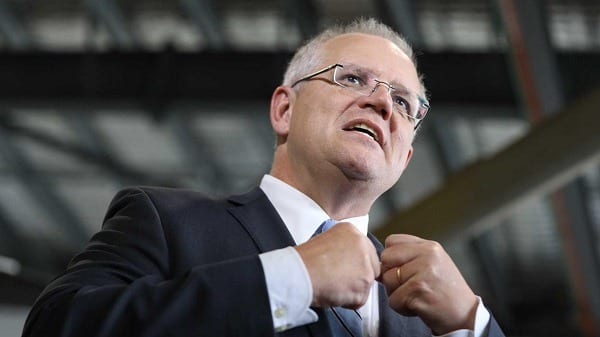An exclusive report in The Australian on Tuesday indicates the Prime Minister Scott Morrison will avoid Australia signing up to an internationally imposed requirement for net zero emissions by 2050, by setting a technology investment target instead.
“The Australian understands the Morrison government will argue at the November Glasgow [UN] summit that its technology investment target is the best way to meet the net zero goal that countries signed up to in the 2015 Paris Agreement.”
The idea of a technology target is to make investment in energy generation economic which may lead to a reduction in emissions.
EXCLUSIVE: Scott Morrison is expected to adopt a tech investment target to avoid Australia signing up to an internationally imposed requirement for net zero emissions by 2050 https://t.co/QXZUtMOMlG
— The Australian (@australian) February 17, 2020
This development comes as the business community has escalated demand for reaching net zero carbon emissions by 2050, against a backdrop of tensions within and between the Liberal party and the Nationals.
The position of the peak body for big business, the Business Council of Australia, is that Australia need to spend “at least” $22billion a year on new investment in technology to reach the target.
“The European Union has identified $440 billion of new investment is needed each year until 2050 to deliver net zero emissions,” a BCA scoping study said. “Applying this metric to Australia, the level of investment would be at least $22 billion each year.”
Moderate Liberal MPs including Trent Zimmerman, Jason Falinski and Katie Allen have all expressed support in recent days for more concrete climate action.
Zimmerman is in favour of the government ‘seriously considering’ a net zero target, while Allen says it’s critical Australia engages in the “arms race” in low emissions technology.
“I believe we need to be open-minded because it is hard for governments to pick commercialised and scalable winners,” Allen said.
The Nationals, led by Michael McCormack, are deeply opposed to a net zero target.
“I think if you go down that path, what you’re going to do is send factories and industries offshore, send manufacturing jobs offshore,” McCormack told the ABC. “That’s not the Australian way. Regional Australia is more than doing its fair share, its fair share as far as making sure that we have lower emissions.”
Nationals Senator Matt Canavan, who earlier this month resigned from Cabinet to support Barnaby Joyce in the leadership spill, is also vehemently opposed to a net zero target.
“I haven’t looked at the modelling or costs and benefits of net zero emissions closely because it just seems so fantastical to me,” he told Sky News.
To have determined a firm policy position without regard for modelling or costs seems an extraordinary admission but Canavan is not deterred. In an op-ed in The Australian on Tuesday he warned jobs and industry will be lost if a net zero emissions target is adopted.
It puts the Prime Minister Scott Morrison “between an immovable object and an irresistible force” according to Paul Kelly. An unsurprising, uninspiring and deeply familiar political predicament.
The PM has risen to the occasion once again by pushing a technology investment to avoid committing to zero-emissions.
In recent history it seems conservative governments in Australia will do anything to avoid taking a leadership position in the realm of climate policy. We have already lost a full decade in which the transition to renewable energy could have begun meaningfully.
It seems this government remains deeply committed to avoiding meaningful action as long as possible.


